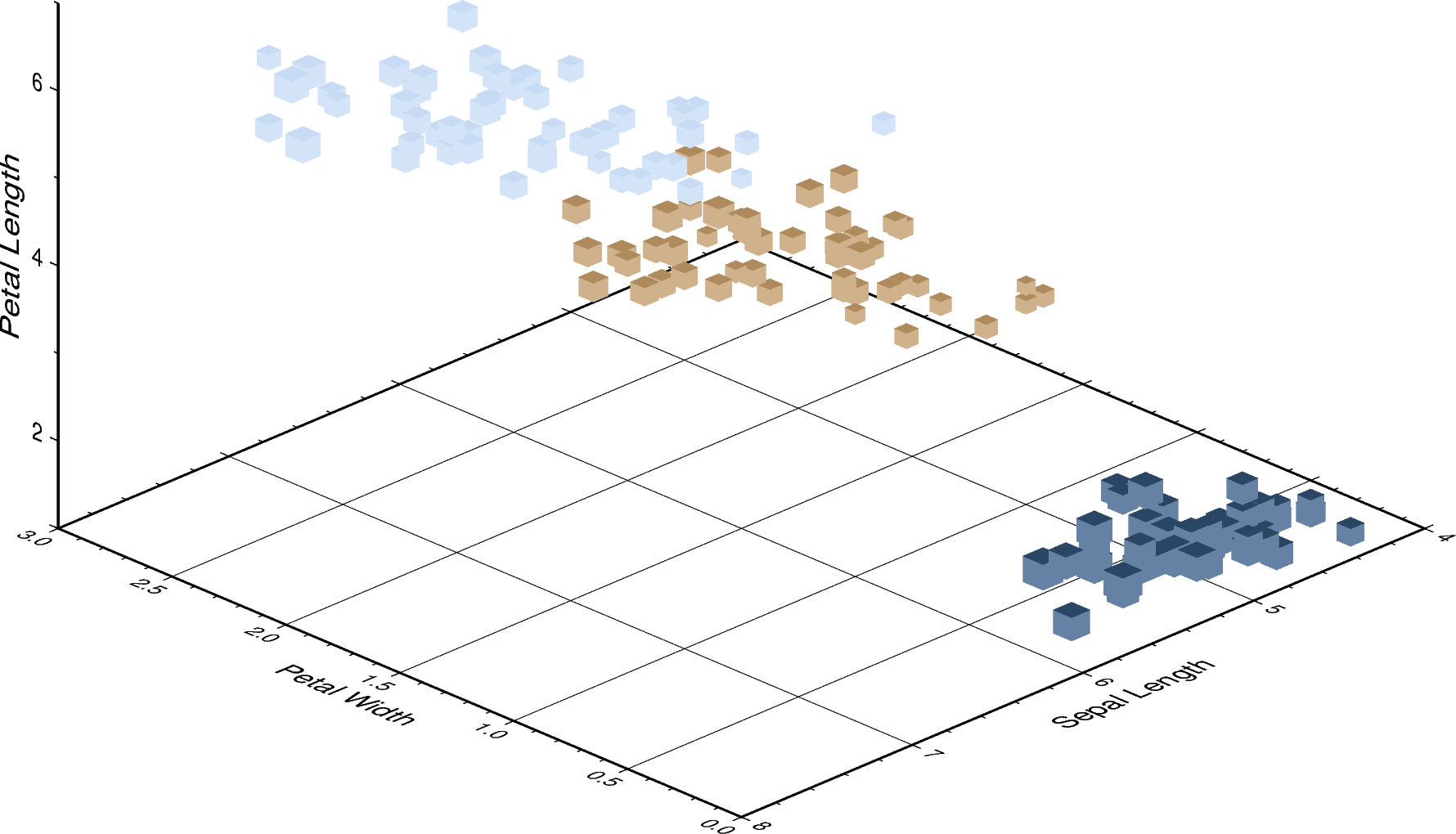Note
Click here to download the full example code
3D Scatter plots¶
The pygmt.Figure.plot3d method can be used to plot symbols in 3D.
In the example below, we show how the
Iris flower dataset
can be visualized using a perspective 3-dimensional plot. The region
parameter has to include the \(x\), \(y\), \(z\) axis limits in the
form of (xmin, xmax, ymin, ymax, zmin, zmax), which can be done automatically
using pygmt.info. To plot the z-axis frame, set frame as a
minimum to something like frame=["WsNeZ", "zaf"]. Use perspective to
control the azimuth and elevation angle of the view, and zscale to adjust
the vertical exaggeration factor.

Out:
<IPython.core.display.Image object>
import pandas as pd
import pygmt
# Load sample iris data, and convert 'species' column to categorical dtype
df = pd.read_csv("https://github.com/mwaskom/seaborn-data/raw/master/iris.csv")
df["species"] = df.species.astype(dtype="category")
# Use pygmt.info to get region bounds (xmin, xmax, ymin, ymax, zmin, zmax)
# The below example will return a numpy array like [0., 3., 4., 8., 1., 7.]
region = pygmt.info(
table=df[["petal_width", "sepal_length", "petal_length"]], # x, y, z columns
per_column=True, # report output as a numpy array
spacing="1/2/0.5", # rounds x, y and z intervals by 1, 2 and 0.5 respectively
)
# Make our 3D scatter plot, coloring each of the 3 species differently
fig = pygmt.Figure()
pygmt.makecpt(cmap="cubhelix", color_model="+c", series=(0, 3, 1))
fig.plot3d(
x=df.petal_width,
y=df.sepal_length,
z=df.petal_length,
sizes=0.1 * df.sepal_width, # Vary each symbol size according to a data column
color=df.species.cat.codes.astype(int), # Points colored by categorical number code
cmap=True, # Use colormap created by makecpt
region=region, # (xmin, xmax, ymin, ymax, zmin, zmax)
frame=[
"WsNeZ3", # z axis label positioned on 3rd corner
'xafg+l"Petal Width"',
'yafg+l"Sepal Length"',
'zafg+l"Petal Length"',
],
style="uc", # 3D cUbe, with size in centimeter units
perspective=[315, 25], # Azimuth NorthWest (315°), at elevation 25°
zscale=1.5, # Vertical exaggeration factor
)
fig.show()
Total running time of the script: ( 0 minutes 1.970 seconds)